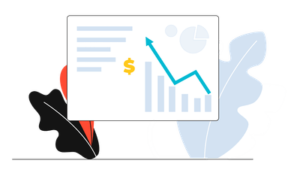Great leaders know how to balance emotion with reason and have the ability to make decisions to positively influence themselves, their employees, customers and every part of their organisation. Good leadership decision-making, especially in difficult situations, is no easy task. They often involve change, uncertainty, stress and sometimes unfavourable reactions.
Good leadership decision-making skills also mean developing critical thinking to identify the problem and find a solution that is beneficial for the company and the employees. In addition, leaders have to maintain impartiality when making decisions; they must be able to communicate in a way that is appropriate to the situation.
The decision-making process
A decision-making process in leadership is a series of steps taken by an individual to determine the best option or course of action to meet his or her needs. In a business context, it is a set of steps taken by the managers of a company to determine the intended trajectory of business initiatives and to initiate specific actions. So, are leadership decisions based on an analysis of objective facts? Yes, and it is possible with the help of the use of business intelligence and analytical tools. Beyond this, it requires support to foster positive habits that promote effective actions. José L. Meléndez CEO and co-founder of ChVmpion Mind puts it very clearly:
“Many more people achieve great things by working within value-giving structures than talented people who have no support to develop their strengths”.
In any business situation there are multiple directions in which to take a strategy or initiative. Thus, leadership decision-making is vital. The variety of alternatives to be weighed, and the volume of decisions that must be made on an ongoing basis, especially in large organisations, makes the implementation of an effective decision-making process a crucial element in successfully managing business operations.
Challenges in the decision-making process…
Balancing data-driven approaches to decision-making in leadership is a difficult proposition. Managers and executives may be sceptical about relying on information that goes against their intuition, viewpoint or knowledge. Often, when making decisions, leaders may feel that their experience and knowledge is dismissed or ignored altogether. As a result, disagreements can arise during the decision-making process. Approximately more than 80% of executives in Spain say that too much data hinders professional decision-making.
However, getting everyone to agree on a decision is a challenge. Especially if the decision-making process is not transparent and decisions are not well explained to the affected parties in an organisation. This requires the development of an internal communication plan in which decisions and a change management strategy can address the effects of decisions made on a company’s operations. Can decision-making models also help to avoid these problems and create a structured and transparent process? Absolutely.
What is a business decision-making model?
A decision-making model in leadership is a system or process that individuals can follow or imitate to ensure that they make the best choice among various options. A model facilitates the decision-making process by providing guidelines to help companies reach a beneficial conclusion.
Decision-making models also make the decision-making process visible and easily communicable to all involved, including management, stakeholders and employees. They can be used for a wide variety of purposes across departments, companies and industries, but are especially useful when selecting software vendors or new tools, choosing new courses of action, or when implementing changes that affect large numbers of people.
Why is decision-making so important?
A leader, especially in business, must be prepared to make a multitude of different kinds of decisions and this should not be taken lightly. The following outcomes are often the result of effective decision-making:
- They help deal with problems: When challenges arise, whether individually or organisationally motivated, the creation of a positive outcome often depends on leadership decision-making and the final decision of a leader. Companies function best when leaders make the right decisions at the right time and without delay. A timely decision at the moment it is needed can change the perspective of everything and redirect the current situation to great improvements.
- They can be motivators: A leader’s main job is to empower talent to work as productively as possible. When employees see that their boss always has strong decision-making and leadership skills, it encourages them to emulate those skills as they grow in their own development. It can also encourage discretionary effort, communication and collaboration.
Besides…
- They save time: Nowadays, we are all very busy. Schedules are packed and it is difficult to manage a team. Effective decision making in leadership can facilitate delegation, reduce mistakes and save employees from having to wonder what to do. Good decision-making provides clear direction.
- Improve productivity: Effective leadership decision-making can move work projects forward. This increases employee productivity. Most working professionals have been frustrated by the stagnation of a task when they can’t get management to make a decision. This slows down work and creates inefficiency. However, when a leader can weigh the pros and cons of a task and make decisions more quickly, it allows employees to start working more motivated and productive.
How can decision-making be improved?
The easiest and surest way to improve decision-making in leadership is through a business coaching process. ChVmpionMind offers the benefits of a business coaching process, without having to pay for a coach. That’s right, in a single platform and to achieve professional objectives together with the well-being of your teams.
It is an innovative system in which you can be part of a 21-week process. In which, day by day you will work towards achieving personal goals and professional objectives. Changing those negative habits that prevent you from achieving your goals. The accompaniment offered by ChVmpionMind goes hand in hand with the best specialists in the area. Although it is about working as your own coach, it is also true that you will have the help and monitoring of professionals with more than 20 years of experience. We know that decision-making in leadership can be a great challenge and that a good leader will always work towards being better every day and for the benefit of his or her organisation.
According to neuroscience…
Neuroscience has provided valuable insights into the processes underlying business decision-making, in short:
- Neuroscience has shown that emotions play a key role in decision-making. Business decisions are not purely rational, but are also influenced by emotions.
- It has been found that leaders and workers with extensive experience in a specific field can make quick and accurate decisions based on intuition. This is because the brain has developed neural connections that allow them to recognise patterns and make quick decisions based on that accumulated experience.
- Neuroscience has supported the notion that complete rationality is limited in business decision-making. The human brain has finite cognitive capacities and therefore business leaders often make decisions based on heuristics and mental shortcuts. This leads to suboptimal decisions in some situations.










